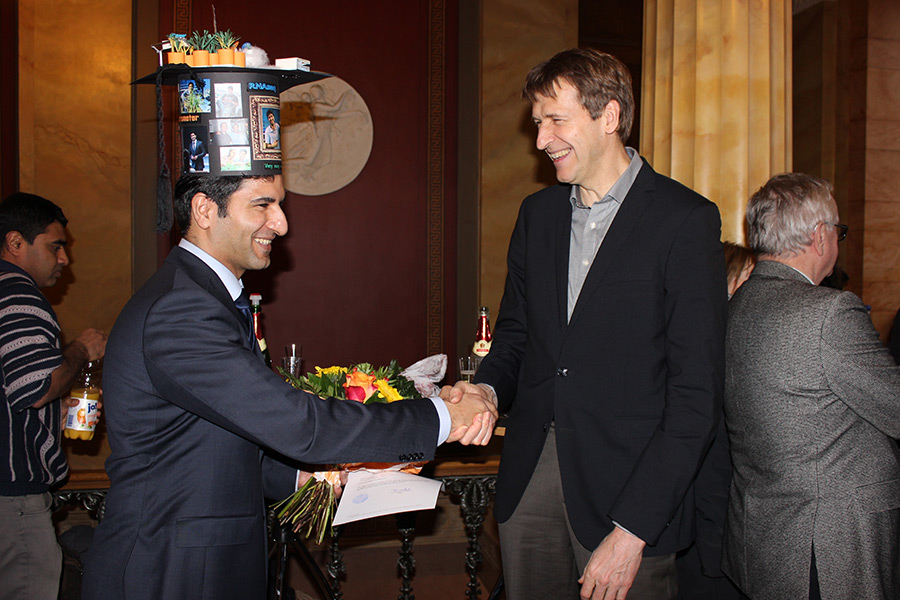With graduation of Ershad Tavakol, the “first generation” of Ph.D.s at IAPN has finished. He followed Bálint Jákli and Merle Tränkner, who graduated a few months before. Ershad Tavakol investigated the impacts of K supply on barley’s (Hordeum vulgare L.) plant water relations (e.g. water use efficiency WUE, stomatal conductance gs and assimilation AN) under osmotic stress conditions.
The main results
The main results of Ershad Tavakols Ph.D. research project are:
1. Potassium affects the plant water relations under osmotic stress by optimizing stomatal conductance and plant transpiration and therefore, maintaining physiological activity leading to less yield loss.
2. Potassium supply strengthens the plants under osmotic stress by mainly avoiding the generation of toxic reactive oxygen species (ROS), and additionally by supporting enzymatic antioxidant activity which helps ROS detoxification. However, the role of K in ROS avoidance is more noticed than its role in active detoxification.
3. Potassium deficiency under osmotic stress induces intensive, energy-costly responses in gene transcription. Sufficient K supply prevents this intensive molecular response and thus, reduces physiological energy costs.
Prior to his Ph.D. studies Ershad Tavakol was a master student in the field of “Sustainable International Agriculture” (SIA) at the University of Göttingen, and he completed his M.Sc. in 2013. Since January 2017, he works for K+S KALI GmbH, but will be still involved in research activities of IAPN through joint project work and research cooperations.
More about Dr. Ershad Tavakol:





